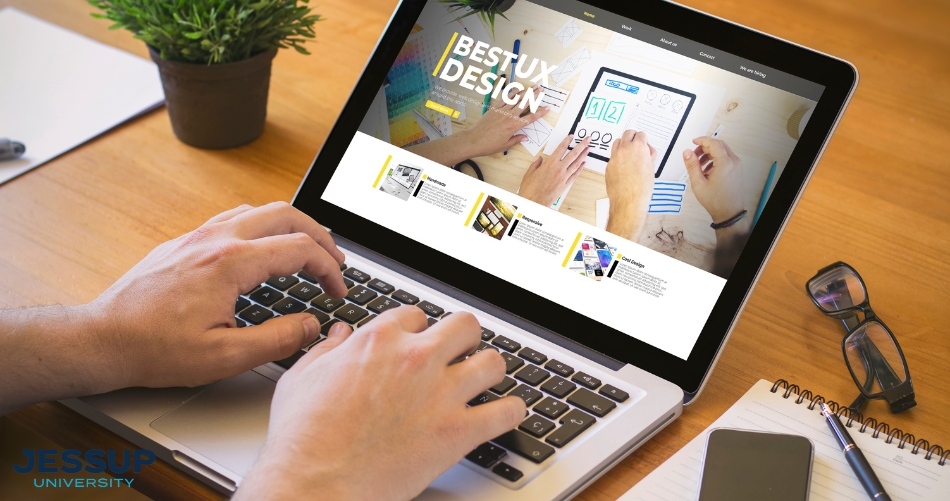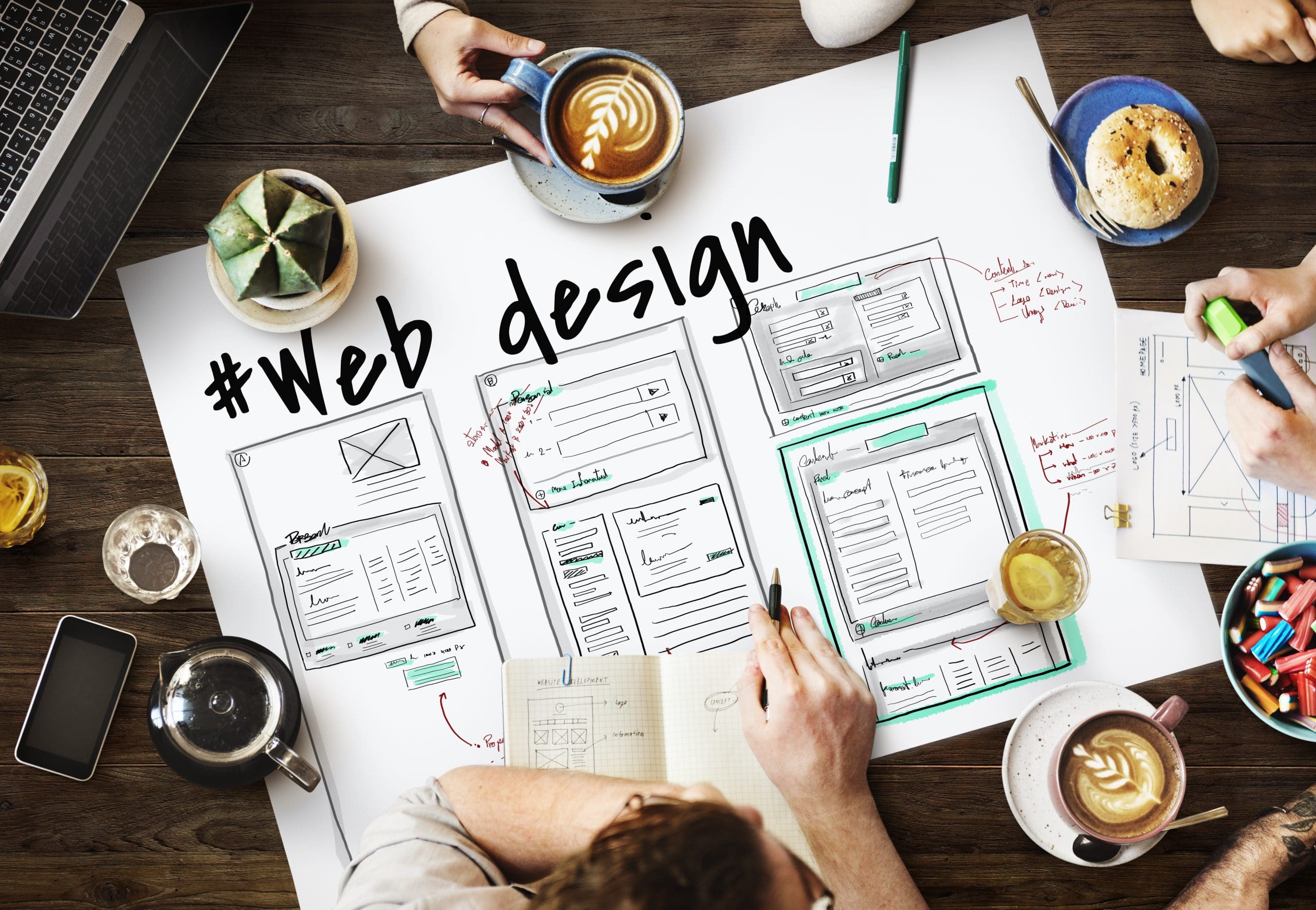Web Design In Guildford Packages That Deliver Results for Contemporary Companies
Web Design In Guildford Packages That Deliver Results for Contemporary Companies
Blog Article
Exactly How to Improve Customer Experience Through Strategic Website Design
In the realm of electronic development, customer experience (UX) has actually come to be the linchpin of effective web style. A critical, user-centered approach, stressing visual uniformity, intuitive formats, and receptive design, can dramatically boost a web site's functionality and appeal. As we check out these principles thoroughly, the importance of incorporating user responses and the role of UX in user retention will certainly likewise be examined, welcoming a much deeper understanding of this vital aspect of web style.
Understanding the Relevance of User Experience in Web Design
The essence of website design lies not simply in aesthetics, but essentially in the user experience it provides. Individual experience, or UX, refers to the total experience a person has while connecting with a web site or web application, particularly in terms of just how comfy and satisfying it is to make use of (Web Design In Guildford). It is a necessary element of website design, as it directly influences the users' impressions, activities, and overall communication with the website
A well-designed internet site with an inadequate individual experience belongs to a stunning building with a badly intended interior; it might look appealing externally, but it falls short to serve its intended function successfully. It may deter customers from staying on the internet site, causing high bounce rates, low individual involvement, and eventually, failure to accomplish the website's goals. This highlights the importance of integrating customer experience into the website design process right from the start.
Applying User-Centered Design Principles
The application of user-centered layout concepts starts with comprehending user actions. This expertise forms the basis for producing an effective user interface design. These two crucial elements, when masterfully integrated, cause an improved customer experience on any internet site.

Understanding Customer Habits
Why do customers behave the way they do on web sites? User habits is determined by a plethora of variables, chief amongst them being their certain requirements and preferences, prior online experiences, and total web savviness. The design of the website additionally plays a significant role. A clean, user-friendly format can assist customers to behave in a particular method, such as leading them towards certain activities or info. Conversely, a complex or messy design can dissuade communication and cause high bounce prices. Recognizing user actions involves researching and assessing these patterns and patterns. Utilizing this knowledge, web developers can produce much more efficient, user-friendly websites that meet the requirements of their audience, thereby improving customer experience.
Effective User Interface Style

Leveraging Receptive Layout for Optimum Watching
Progressing in the discourse, the focus now changes to the relevance of leveraging receptive style for ideal viewing. This entails discovering the process of applying receptive website design and comprehending its effect on customer experience. The occurring discussion aims to clarify the advantages of optimal viewing and exactly how responsive layout promotes it.
Executing Responsive Website Design
Using the power of responsive internet design is a vital step in the direction of boosting individual experience. These aspects incorporated develop a receptive internet style that adjusts to the customer's requirements. While the process may appear facility, the end result is a more user-friendly and available website, considerably boosting the user experience.
Benefits of Optimal Viewing

Furthermore, responsive layout can result in enhanced search engine optimization rankings, as online search engine favor sites that deal with several gadgets. Last but not least, it can decrease bounce prices and enhance conversion prices as users are less most likely to additional info abandon websites that are easy to navigate. Therefore, optimum viewing can dramatically enhance individual experience, making it a crucial element of tactical website design.
Integrating Easy Navigation and Intuitive Layouts
Alleviate and instinct in site navigation form the bedrock of user complete satisfaction. They are likely to desert the site and look for alternatives if individuals struggle to find what they are looking for. A critical internet layout should integrate clear, easy-to-follow navigating and an user-friendly design. This can be accomplished by arranging information in an ordered structure, with one of the most essential areas plainly featured.
Basic navigating food selections, breadcrumb routes, and clickable buttons lead users via the site effortlessly. Consistency in style elements throughout web pages also adds to intuitive navigation. Placing the search bar or the shopping cart symbol in the same area on every web page permits users to find these attributes swiftly.
In addition, an user-friendly layout is one that expects individual requirements. It places components and info where customers expect them to be. This lowers the cognitive load on customers, improving their total experience on the website.
The Duty of Visual Layout in User Experience
While the structure and layout of an internet site are substantial for user experience, the visual style plays an equally important role. A messy or inconsistent aesthetic design can perplex users and lead to a negative customer experience. Internet developers need to tactically utilize aesthetic design aspects to develop a unified and intuitive user interface that improves the total individual experience.
Case Researches: Effective Customer Experience Design at work
Despite the theoretical understanding on customer experience style, it gets actual value when used in practical situations. 2 noteworthy situation studies show this. Airbnb, an international on the internet industry, successfully boosted their individual experience by revamping their site. By focusing on individual responses, they established a more instinctive, user-friendly interface that substantially enhanced booking experiences. This brought about enhanced user complete satisfaction and conversion rates.
The outcomes were a significant boost in mobile traffic and check here individual involvement, showing the efficacy of critical web style in improving user experience. These instance studies show that practical application of user experience layout can generate substantial advantages.
Conclusion
To conclude, calculated web layout is an important tool in enhancing customer experience. By applying user-centric layout concepts, leveraging responsive design, including intuitive navigating and layouts, and using the power of visual style, businesses useful source can create web sites that are satisfying and engaging for customers. Reliable web style, showcased via various successful situation researches, considerably boosts customer engagement and retention rates, verifying its critical role in digital success.
As we check out these concepts in information, the value of integrating individual comments and the function of UX in customer retention will certainly also be analyzed, welcoming a much deeper understanding of this critical element of internet style.
It might deter users from staying on the site, leading to high bounce prices, reduced individual involvement, and ultimately, failure to attain the website's goals. A inconsistent or messy aesthetic layout can confuse individuals and lead to an unfavorable individual experience. Internet designers have to tactically utilize aesthetic layout elements to develop a user-friendly and harmonious user interface that enhances the total customer experience. The outcomes were a considerable boost in mobile traffic and user interaction, showing the efficiency of calculated web design in boosting individual experience.
Report this page